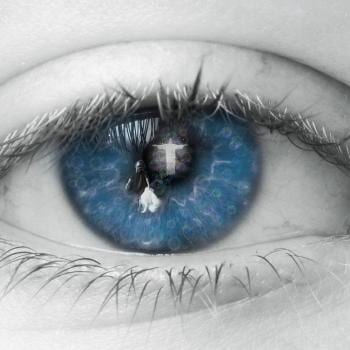
Yesterday, I asked my friends and followers on social media to help me put together a list of women who are:
- Writers
- Mothers
- Dealing with a disability or chronic condition (physical or mental)
I’d like to put together a series that highlights these women and their work, and I kind of have a selfish reason for doing it.
I’m one of those women.
“You can’t be what you can’t see.” -Marian Wright Edelman
Several years ago, I was blogging sporadically and basically just being depressed about leaving my career after my health had taken a dive. I had always wanted to write a book, but I couldn’t see how that would be possible since sitting at the computer for long periods of time caused intense pain (thanks so much, Ehlers-Danlos Syndrome!) I figured if I couldn’t sit at the computer and type for hours at a time, I could never write a book.
One day, I saw a tweet that mentioned a book Tanya Marlow had just released, and it looked interesting. I read through it and saw she was a lot like me. Actually, her M.E. was even more severe than my condition, and she wrote a book.
If she could do it, maybe I could figure out some way of pulling it off too.
It took me about three years, mostly writing in 15-minute increments (which meant I had to be diligent about keeping an outline), but I did it.
Before I could have confidence in my own ability, I had to see that someone like me had done it.
Sometimes we need to see we’re not cutting a new path. This has been done before, and it can be done again.
I’m interested in finding the voices most people aren’t hearing. It’s hard for most writers out there to rise above the noise. When everyone jumps on the bandwagon and reads that One Very Popular Book that just came out and was marketed in every possible way, they don’t pick up that amazing book that just came out from a lesser known author. I’m looking for the awesome work being done in the shadows of these well-known bloggers and authors.
If you don’t have a huge platform, it’s hard to get your work published.
If you’re a woman, you have to battle sexism as it pops up in your career as a writer.
If you’re a mother, it’s hard to find the time and mental energy to work on a project.
If you’re dealing with a disability or chronic condition that often interrupts your work, it’s also hard to find time and energy.
When you add those together, it’s even more challenging. If you live in a country that doesn’t have accessible healthcare, you’re very likely living in poverty due to medical bills as well.
When we talk about intersectionality, we often forget about disabilities. It’s hard to talk about it sometimes because “disability” can mean so many different things. Some people have milder challenges that don’t usually interfere with daily life. Others deal with conditions that really do prevent them from doing all the things people without disabilities can do. (And no amount of “positive thinking” can change that.)
When we’re sitting at the intersection of female and disabled, then we add the societal pressure, stress and, frankly, guilt associated with being a mother, where does that leave us? Is it even possible to create art under those conditions?
Yes, it is possible.
We’re doing it.
I believe it’s important to have some honest conversations about what it means to be creative while also balancing motherhood and the challenges of our disabilities or conditions.
We can talk about the unique challenges women who are trying to create under these sorts of pressures face and share what we’ve found to be helpful in our own situation.
How do we network with other writers or creatively market our work if we’re housebound?
How do we continue to study our craft if formal education isn’t accessible?
How do we work if we can’t afford the accessibility devices that would help us be more productive?
How do we make art during times our depression is so deep, all we can manage is making sure the kids get fed?
How do we ask for help without feeling like a failure?
How do we pick our work back up after periods of intense mental or physical strain that forced us to step away for a time?
How do we find time and energy to create if we don’t have a support system to help with childcare and we’re already exhausted when we wake up every morning?
How do we teach our children the importance of art and the importance of mothers having an outlet for their creativity?
How do we choose between doing the dishes (and being bed-ridden the rest of the day) and writing a chapter on the computer (and being bed-ridden the rest of the day?)
Unless she has a good support system, mothers don’t get “rest days” to make up for overworking herself while working on a project. Mothers have to constantly keep their children’s needs in mind. If she pushes her mind or body too hard to finish up that book she’s working on, she’s not the only one who will have to pay the price if she goes down for several days to recuperate.
The lack of support for both mothers and people who are dealing with chronic conditions mean we’re missing out on talented writers who have important things to say.
Let’s pay attention to the women who are writing through it and making art that is both informed by, and sometimes stunted by, the lives their living.
If you know of a writer who is a mother and has a disability or chronic condition, let us know about her.












